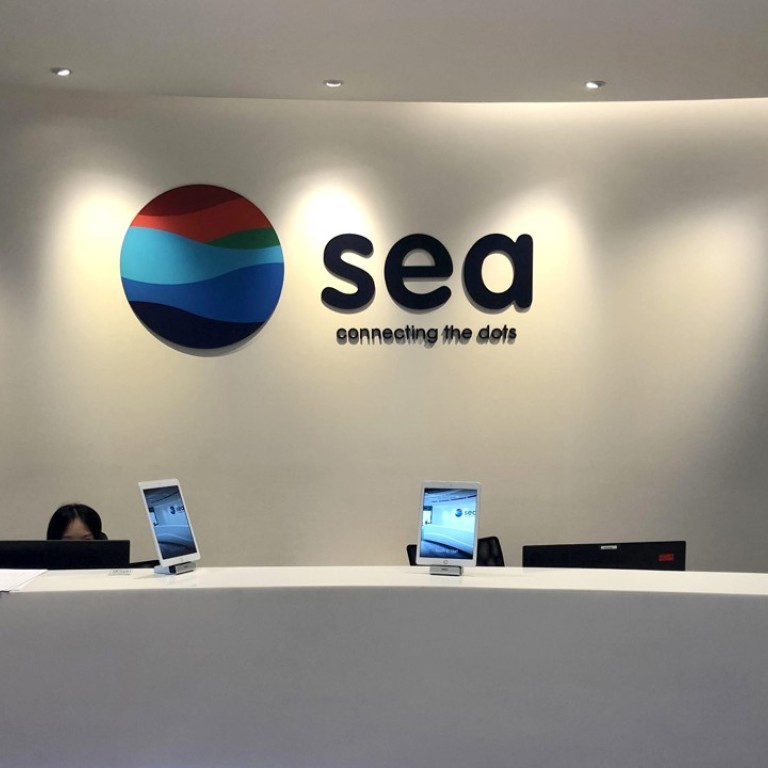
Chinese gaming giant Tencent looks to Southeast Asia with Sea partnership amid regulatory uncertainties at home
- Sea operates Southeast Asia’s biggest gaming platform with 161 million quarterly active users
- Region one of the fastest-growing in gaming, with revenue of US$2.2 billion last year
Tencent Holdings, China’s biggest social media operator and games publisher, has partnered with Singapore-based gaming and e-commerce company Sea to publish its game titles in Southeast Asia as the Chinese tech giant looks to the international market amid stalled growth at home.
The deal grants Garena, Sea’s digital entertainment arm, the right of first refusal to publish Tencent’s mobile and PC games in Indonesia, Taiwan, Thailand, the Philippines, Malaysia, and Singapore for five years, according to a statement issued on Monday by Sea.
“Garena operates across some of the fastest-growing markets globally and has a deep understanding of the dynamics in these regions. Our long-term partnership and collaborations with Garena on key titles have been successful, and we are glad to further deepen our strategic partnership through this arrangement,” Martin Lau, president of Tencent, said in the statement.
Sea, backed by Tencent which first invested in the company in 2010, operates Southeast Asia’s biggest gaming platform with 161 million quarterly active users as of the second quarter of 2018. Garena is already selling Tencent’s most popular games on its platform including Arena of Valour, the international version of Tencent’s blockbuster game Honour of Kings, and League of Legends.
The partnership comes as growth in China’s gaming industry has stalled after a halt in the game approval process and a tightening regulatory environment at home, leaving developers and publishers eager to explore overseas opportunities.
China’s gaming industry has been coping with a hiatus in the approval of new games since March due to a regulatory reshuffle, and broader calls from Beijing for gaming companies to do more to protect the nation’s youth from online addiction and myopia. In August China’s Ministry of Education announced a plan to curb the number of new online games and limit playing time in an effort to protect the eyesight of children.
In the first half of the year overseas sales of China-developed titles reached US$4.6 billion, up 16 per cent year on year, outpacing the 5 per cent year-on-year growth in the industry overall, according to Beijing-based research firm CNG.
The mobile version of Tencent’s popular title PlayerUnknown’s Battleground had the second-highest number of monthly active users of any smartphone game globally in the third quarter of 2018, and its revenue tripled quarter on quarter outside China, according to App Annie. Meanwhile, Tencent is still awaiting for approval to monetise the game at home.

Tencent’s mobile games business reported 11 per cent sequential growth in the third quarter thanks to a seasonal boost over the summer holidays and new releases. Mobile games revenue for the quarter was up 7 per cent year on year to 19.5 billion yuan (US$2.9 billion), while personal computer games revenue fell 15 per cent year on year to 12.4 billion yuan as players continue the shift to mobile games.
The deal with Garena, whose US$139.1 million revenue in the second quarter is tiny compared to Tencent, would nonetheless help expand the Chinese giant’s games in the burgeoning Southeast Asian market.
Home to some 655 million people in 11 countries, Southeast Asian has become a battleground for Chinese tech companies for its largely untapped online markets and rising middle class.
It is also one of the fastest-growing regions in gaming, with PC online and mobile game revenue reaching US$2.2 billion in 2017. Revenue is expected to double to US$4.4 billion by 2021, according to market research firm Niko Partners.

